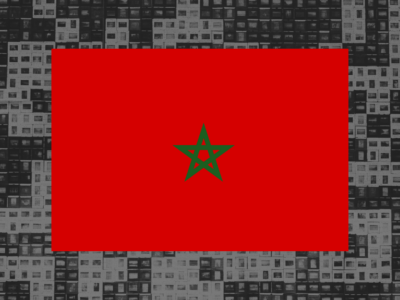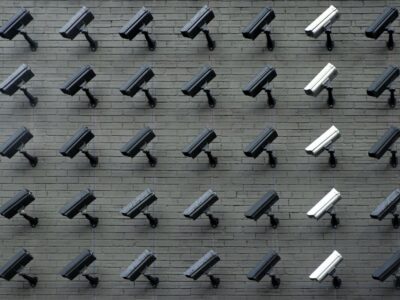The original version of this post appeared on the Electronic Frontier Foundation’s Deeplinks blog.
Over the past few years, Morocco has made great strides increasing Internet access for its 32.5 million citizens. Between 2008 and 2013, its population of Internet users increased from 10.2 million to 17.8 million, pushing growth in Morocco’s IT sector. The Moroccan government has put significant resources into increasing Internet access in schools and expanding e-government platforms. Recently, Moroccans enraged by the monarch’s pardon of a convicted pedophile found critical mass to support an online campaign that ended with authorities rescinding the pardon and re-arrest the perpetrator. It has been cited as the first successful online campaign of its kind in the country.
Unfortunately, and despite reportedly having pulled back on web filtering, the Moroccan government has also put resources into targeting journalists and dissidents. Last year saw a rise in arrests of social media users, while more recently, a journalist was charged with criminal defamation for a report on government corruption that embarrassed a high-level minister.
Last week, another journalist was arrested after reporting on forces that have been critical of the Moroccan government. Ali Anouzla, editor of the Arabic edition of the online news site Lakome—which he also co-founded—was detained without charge on Tuesday in connection with an article published by the website on July 13 that commented on a YouTube video allegedly posted by Al-Qaeda in the Islamic Maghreb (AQIM). Although the Lakome article did not link directly to the video, it referenced an El País article that did contain a link to a video.
The video, which was reportedly removed from YouTube at the request of Moroccan authorities [ar], criticized the Moroccan king and called on youth to engage in jihad. According to the Committee to Protect Journalists, Morocco’s general prosecutor said that publishing threats from Al-Qaeda was a criminal action and that victims of terrorist attacks in the country had requested an investigation into several publications that linked to or reposted the video.
According to sources in the country, Anouzla is being held in Casablanca, and has so far been barred from meeting with his lawyer. An Amnesty International report stated that his lawyers have received authorization to visit him last week. Morocco’s Penal Code allows authorities to hold suspects in terrorism-related cases in pre-arraignment detention for up to twelve days, and allows contact with the suspect’s lawyer to be denied for up to six days.
On September 18, more than two hundred individuals participated in a demonstration in front of the judicial police brigade calling for freedom of expression and freedom for Ali Anouzla.
A Convenient Excuse
Recent history in Morocco has seen no shortage of incidents like this one, wherein authorities target a journalist or publication for a petty offense in order to silence them. In 2007, the edgy new magazine Nichane was banned for two months for publishing a compendium of popular Moroccan jokes, some of which authorities deemed insulting to the monarchy. And in 2009, news site Akhbar Al-Youm was banned after publishing a cartoon deemed an insult to the national flag, its editors charged with “defiling the national flag” and “failing to show deference to the prince.” But perhaps the most famous case is that of Ahmed Benchemsi, the creator of Nichane and former editor of TelQuel, who chose self-imposed exile over the death of his magazine.
Although the government has successfully shut down numerous traditional publications over the years, it has had less luck silencing online media. In a 2012 interview with Lakome co-founder and acclaimed journalist Aboubakr Jamaï, interviewer Hasna Ankal addressed this issue head-on, asking Jamaï about the role of the electronic press in Morocco. Jamaï responded:
It is not easy to be a journalist in Morocco. According to the Press Freedom Index of Reporters Without Borders pressfreedom [sic] in this country has deteriorated. The imprisonment of journalist Rachid Nini caused damage to Morocco’s reputation as one of the most liberal countries in its region. Yet the new constitution promised greater freedoms for media as well as greater freedom of expression. But for Jamaï the only freedom left is online.
Lakome, which hosts its site on servers in Canada, has sided with the February 20 movement promoting democracy, free expression, and other liberal values, and is therefore an easy target for the Moroccan government. Furthermore, some have cited Anouzla’s “excellent” reporting on #DanielGate—the recent campaign that saw the monarch rescind his pardon of a convicted pedophile—as a possible reason for his being targeted.
Along with our colleagues at the Electronic Frontier Foundation, Global Voices Advocacy sees Anouzla’s arrest as yet another attempt by the Moroccan government to silence critical, independent voices online. We urge authorities to uphold their commitments to international human rights agreements, allow Anouzla immediate access to his lawyers, and discourage them from filing charges against him.





1 comment